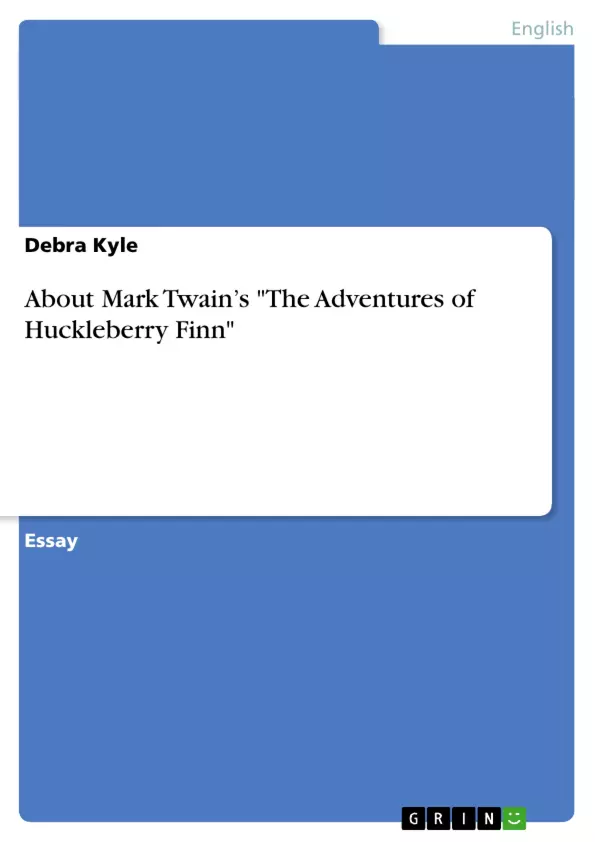The Adventures of Huckleberry Finn is often referred to as a bildungsroman because
Huck, its hero, takes three major steps towards becoming a morally free man: to help Jim
escape, not to turn him in, and to go to hell to save Jim (Shockley 2). To a large extent,
Huck’s growth is the result of spending time with Jim as he begins to view him as an equal
human being and thus treats him with respect. In a sense, Jim serves as a substitute for
Huck’s father. Contrary to his natural father, Jim takes the role of the father that gives him
moral courage, and seeks to love and protect him.
Huck’s character develops the more experience he gains which leads him to becoming
aware of society’s falseness until he finally rebels against it by doing the right thing: freeing
Jim even though that means going to hell and eternal punishment. The quest for freedom
from social constraints is the propelling force that makes Huck flee the racist society in which
he is living. In the end, Huck is morally freed from Southern society’s hypocrisy and injustice
by listening to his heart instead of his conscience. [...]
Inhaltsverzeichnis (Table of Contents)
- Huck's Moral Struggle
- Jim's Deep Affection
- Huck's Conscience
- The Moral Struggle
- Huck's Final Decision
Zielsetzung und Themenschwerpunkte (Objectives and Key Themes)
This essay examines Mark Twain's The Adventures of Huckleberry Finn, exploring the protagonist's moral development as he confronts the hypocrisy and injustice of Southern society. It analyzes key episodes where Huck wrestles with his conscience, ultimately choosing to defy societal norms and embrace his own moral compass.
- Huck's moral development
- The influence of society on individual morality
- The power of personal experience in shaping moral values
- The contrast between societal norms and genuine humanity
- The role of friendship and compassion in overcoming prejudice
Zusammenfassung der Kapitel (Chapter Summaries)
The essay focuses on two pivotal episodes in Huck's moral journey. Chapter 15 highlights the growing bond between Huck and Jim, as Huck witnesses Jim's profound love and realizes the depth of his own feelings for his friend. Chapter 31 delves into Huck's internal struggle as he grapples with the consequences of helping Jim escape slavery, ultimately choosing to defy societal expectations and follow his heart. These chapters showcase the tension between societal norms and individual morality, emphasizing the power of personal experience and compassion.
Schlüsselwörter (Keywords)
This analysis focuses on The Adventures of Huckleberry Finn, examining themes of moral development, societal hypocrisy, individual conscience, friendship, and prejudice. The essay explores the contrast between societal norms and genuine humanity, highlighting the power of personal experience and compassion in shaping moral values.
- Quote paper
- Debra Kyle (Author), 2010, About Mark Twain’s "The Adventures of Huckleberry Finn", Munich, GRIN Verlag, https://www.grin.com/document/262288



